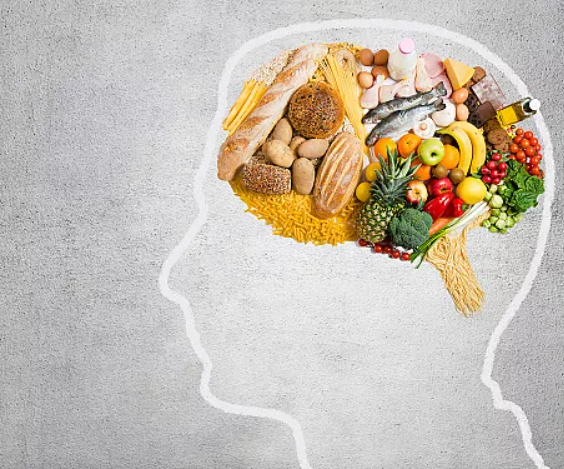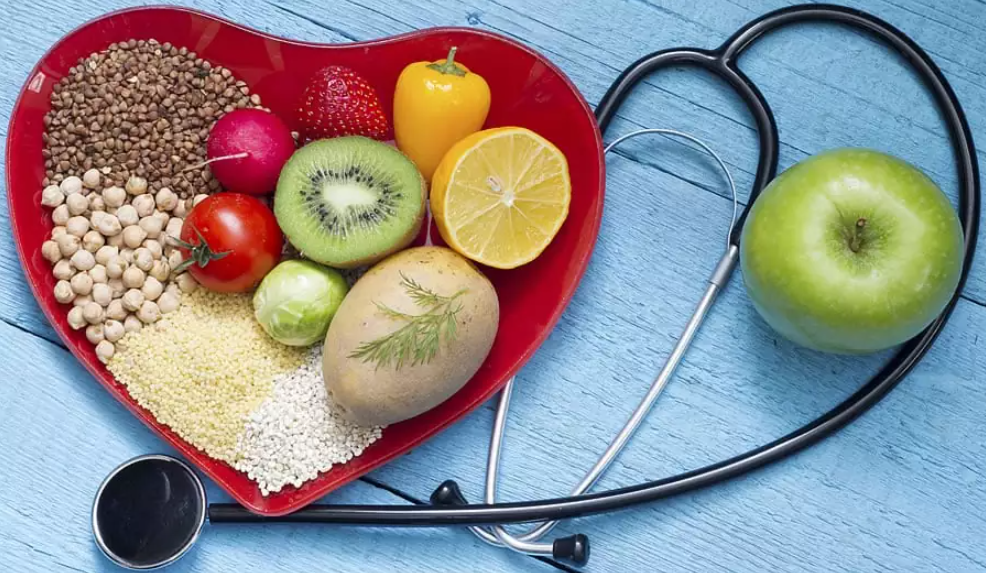For many reasons, a balanced diet is important. A balanced diet can help you lose weight, increase energy, and prevent diseases. Did you know it can also help improve your mental health?
You can feel happier and less anxious if you eat the right foods. What foods can you eat to improve your mood? Certain nutrients are great for your mental health.
These nutrients include probiotics, vitamin D, magnesium, and omega-3 fatty acid. All of these nutrients can be obtained from food and supplements.
For good mental health, a balanced diet is important. A varied diet that includes healthy foods can improve brain function and protect you from mental health problems. Evidence suggests that certain nutrients are vital for mental health.
These include omega-3 fat acids found in fish and certain plant oils; B vitamins found in wholegrains and meat; and minerals such as iron and zinc. A balanced diet can not only improve your physical health, but also your mental well-being. This can reduce stress and improve mood, energy, and sleep quality.
If you feel anxious or low, ensure that you are getting enough nutrients through a healthy and varied diet.
Credit: www.healthline.com
What are the benefits of a balanced diet for mental health?
While a balanced diet is important for physical health, it is also essential for mental well-being. How we eat can impact our mood, energy levels, and ability to think clearly. It’s important to pay attention to what you eat if your goal is to improve your mental health.
These are just a few of the many benefits that a balanced diet can have on your mental health. It can improve your mood and energy levels. If you feel low in energy, or are struggling to get up, it could be because of what you eat.
Our bodies don’t work as well if we don’t get enough nutrients from a balanced diet. This can cause fatigue and mood swings. Eating a healthy diet can boost energy levels and improve mood.
Healthy foods are essential for our bodies to function properly. Omega-3 fatty acids, which are found in oily fish such as salmon, have been shown to improve mental health. Avocados, nuts, seeds and avocados are all good sources of omega-3.
2. It can protect against cognitive decline. Cognitive function declines with age, including memory loss and processing speed. Research suggests that the way we eat can impact how our brain age.
One study showed that those who followed a Mediterranean-style eating plan had a lower chance of developing Alzheimer’s disease ( 1 ). Mediterranean food includes lots of fresh fruits, vegetables, whole grains, legumes and fish. These are all nutrients that have mental health benefits. There are many delicious recipes available online that will help you try this diet.
3\. It can lower inflammation in the body. Inflammation may play a role for many mental health conditions such as depression (3 ). Studies have shown that an anti-inflammatory diet can help to reduce symptoms ( 4, 5, 6 ). You can include many anti-inflammatory foods into your meals and snacks. These include blueberries, turmeric, ginger and spinach as well as olive oil and salmon. These foods can be beneficial for anti-inflammatory purposes, but they will not replace unhealthy eating habits ( 6 ). It is important to eat them as part of balanced eating.
What can a balanced diet do for mental health?
While a balanced diet is important for your physical and mental well-being, did you know that it can also impact your mental health? A healthy diet can prevent certain conditions such as diabetes and heart disease, but it can also protect you from mental health problems and promote mental well-being. It is becoming increasingly clear that our moods and cognitive functions are directly affected by what we eat.
Studies have shown that those who eat high amounts of processed foods and refined sugars are more likely than those who eat healthy. People who eat a lot of fresh fruits, vegetables, and other healthy foods are more likely than others to experience happiness and greater life satisfaction. How can a balanced diet improve mental well-being?
You can boost your mood and energy by eating the right foods. Regular meals help to maintain blood sugar levels, which can prevent energy crashes that can lead to fatigue and low mood.
– Reduce inflammation. Inflammation may play a role when certain mental health conditions like depression develop. Healthy eating habits rich in anti-inflammatory food (such as turmeric, omega-3 fatty acid, and green leafy veggies) can reduce inflammation in the body, including the brain. Research suggests that certain nutrients, such as vitamin B12 and iron, are crucial for cognitive function.
You can get the nutrients you need to be able to function at your best.
What foods should I eat to maintain a balanced diet for mental health?
For mental health, a balanced diet is essential. For brain function and mood, certain nutrients are particularly important, such as omega-3 fatty acid, vitamin B6, folate and magnesium. Fish oil and certain oils from plants contain omega-3 fatty acids.
They are vital for brain cell growth and communication. Studies have linked low levels of omega-3s to depression and other mental disorders. Vitamin B6 plays a role in the production neurotransmitters such as serotonin, dopamine, and dopamine.
Folate can be found in eggs, poultry, whole grains, dark leafy greens, whole grains, and whole grains. Folate, also known as Folic acid, is a nutrient that aids the body to produce new cells. Folate can be found in leafy green veggies, legumes and nuts as well as seeds.
Depression has been linked to low levels folate. Magnesium plays an important role in many biochemical processes in the body. Magnesium can be found in whole grains, beans, seeds, nuts, and seeds.
What is the importance of a balanced diet for mental health?
For mental health, a balanced diet is essential because it provides the nutrients that the brain requires to function properly. The brain is complex and requires energy to function. It gets its energy from the food we eat. A healthy diet can improve brain function and mood.
A lack of nutrients can lead to mental health problems. It is important to eat a healthy diet for good mental health. Studies have shown that eating a diet high in processed foods and low on fresh fruits and veggies can lead to anxiety and depression. A healthy diet can reduce your risk of developing or managing mental health problems.
How Diet might be a big deal for mental health
The Link Between Food and Mental Health
The brain, the largest organ of the body, is the human brain. It is also the heart of our nervous system. It controls everything, from basic motor skills to higher cognitive functions. It’s not surprising that our mental health can be affected by what we eat.
Food has been used for centuries as a natural treatment for various mental conditions. The ancient Greeks used garlic for depression and the Chinese ginger for anxiety. We know that certain foods have a strong correlation with mood. However, we still don’t fully understand how these nutrients affect brain function and behavior.
Scientific evidence is growing that certain nutrients are crucial for brain function. Omega-3 fatty acids, for example, are essential for healthy cell membranes as well as proper neurotransmitter function. Deficiencies in omega-3s have been associated with mood disorders such anxiety and depression. Important biochemical reactions are also triggered by other nutrients, such as iron, magnesium and vitamin B6. They are implicated in mental disorders like schizophrenia, attention deficit hyperactivity disorder (ADHD), and autism spectrum disorder (ASD).
Although more research is needed to fully understand the impact of food on mental health, it is clear that eating habits have a profound effect on how we think, feel, and behave. You might feel better if you make some lifestyle changes if you are struggling with your mental well-being.
Conclusion
For good mental health, a balanced diet is important. A variety of healthy foods can improve brain function and help prevent mood swings, anxiety and depression.














Leave a Reply